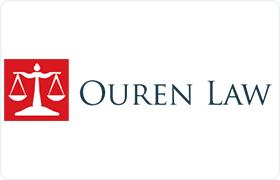Buena Misdemeanor Lawyer, Washington, page 4
Sponsored Law Firm
-
 x
x

Click For More Info:
-
Ouren Law
4101 South Union Street Kennewick, WA 99337» view mapCriminal Defense Dedicated. Straightforward. Tough.
With more than a decade of experience, Attorney Ouren has helped many clients achieve successful results in their family law and criminal law matters.
800-971-6601
Not enough matches for Buena Misdemeanor lawyer.
Below are all Buena Criminal lawyers.
Brian Dosch
Constitutional Law, Family Law, Juvenile Law, Criminal
Status: In Good Standing Licensed: 27 Years
Robert Stewart Young
Federal, Family Law, Criminal, Collection
Status: In Good Standing Licensed: 45 Years
Kip Bates Kendrick
Wills & Probate, Estate, White Collar Crime, Criminal
Status: In Good Standing Licensed: 50 Years
Ulvar Wallace Klein
Employment Discrimination, Criminal, Bankruptcy, Defamation & Slander
Status: In Good Standing Licensed: 30 Years
 Kimberly Ouren Kennewick, WA
Kimberly Ouren Kennewick, WA Practice AreasExpertise
Practice AreasExpertise
